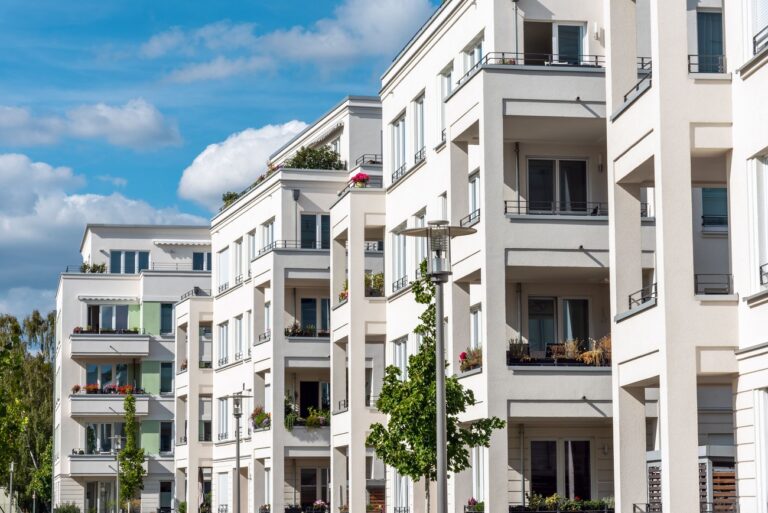When does real estate protect against inflation?
Currently, many investors and prospective buyers are uncertain, the more they long for a safe investment opportunity for their capital. Tangible assets such as real estate are considered such safe investments. The reason for this lies in the fact that real estate does not lose value as quickly as money, even when inflation is rising. There always remains a countervalue: the building.
How well real estate serves as inflation protection always depends on various factors – including whether the property is owner-occupied or rented out. Owner-occupiers who finance their property with a loan currently have the advantage that the inflation rate devalues the money and consequently the debt. So in the long run, you pay less for current loans. In addition, owner-occupied real estate offers good security in old age – whether you later live in it rent-free, generate rental income or finance your livelihood with the proceeds (and hopefully high appreciation).
Rented investment property is considered inflation-proof if the appreciation or rent increases as a percentage of the inflation rate. Rents do increase, but usually only as a percentage of inflation if you sign what are known as index leases. Here, the rent is based on the consumer price index, which is determined monthly via the average price development. Alternatively, graduated leases could be agreed upon, in which rents are regularly increased at a certain point in time.
How does the market affect the inflation-proofing of real estate?
The fact that rental income flows in regularly and the property experiences an increase in value depends not least on the location. The market thus strongly influences how profitable and thus inflation-proof a property is. Hamburg has always been considered an important economic and commercial center in northern Germany. Demand for housing and investment property is correspondingly high. Especially if you want to use real estate as a long-term investment, Hamburg can be an attractive market. It is essential to have sound, individual advice on investment options that takes your personal situation into account. Please feel free to ask for an appointment!



